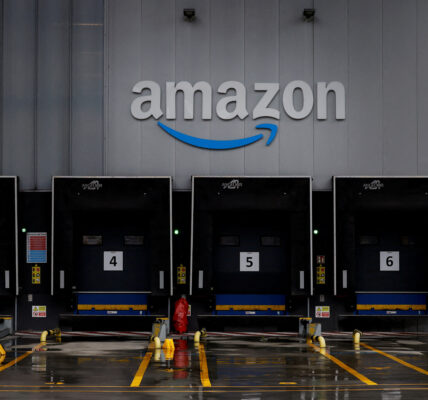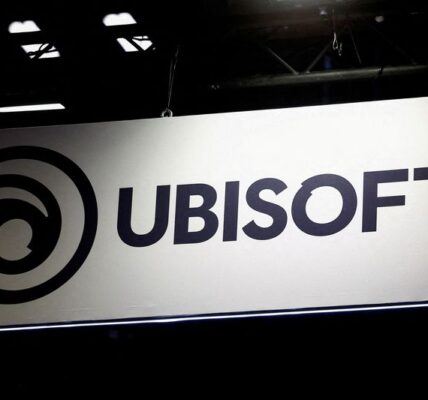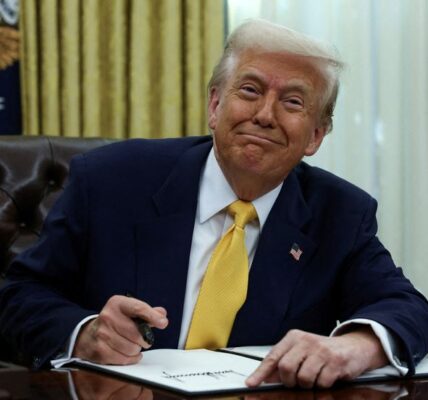LONDON/BENGALURU -Drugmaker stocks gained a temporary reprieve on Thursday as U.S. President Donald Trump spared pharmaceutical products from reciprocal tariffs, but executives and analysts warned it was premature to celebrate as tariffs were still likely to come.
Trump imposed a 10% tariff on most U.S. imports, as well as much higher levies on dozens of rivals and allies alike, but temporarily exempted some goods, including pharmaceuticals, benefiting major exporters including India, Japan and Ireland.
Shares of U.S. drugmakers were mostly flat to down in premarket trading, but the moves were muted compared to other sectors. Johnson & Johnson rose marginally, while most others, including Amgen, fell less than 1%.
Asian healthcare stocks surged, led by Indian generic drugmakers, defying the broader market drop. European healthcare stocks also outperformed.
British drugmakers GSK and AstraZeneca, as well as Danish company Novo Nordisk rose between 1.5% and 2%, reflecting the relief that pharmaceutical products for now remained out of the crosshairs of the trade wars.
A U.S. official said on Wednesday the president plans separate tariffs targeting the pharma sector.
Trump in his White House Rose Garden announcement once again namechecked the industry, predicting that pharma companies will come “roaring back” to the U.S, and warning if they don’t, “they got a big tax to pay”.
The order “calls out the need to maintain “robust and resilient domestic manufacturing” in sectors such as pharmaceuticals, suggesting this remains on the administration’s radar,” RBC Capital Markets analysts said.
PALL EXTENDS
Many in the industry predicted the recent uncertainty over tariffs would continue to cast a shadow over drugmakers.
“The only thing that feels certain is more uncertainty,” Barclays analyst Emily Field told Reuters.
One source at a European drugmaker said the sense on pharma sector tariffs was: “It’s not today, but it’s coming.”
Trump’s executive order listed pharmaceuticals alongside lumber, semiconductors and other sectors that could be subject to investigation under Section 232 of the 1962 U.S. Trade Act.
U.S. manufacturing costs for pharma companies will increase as country-specific tariffs will affect key supplies such as organic chemicals and glassware used to make pharma products, Bernstein analysts said in a note. They calculated an additional $45 billion of import cost risk to the pharma industry.
Jefferies analysts said Biogen and Amgen were among those with most ex-US exposure, while UBS highlighted AbbVie and Merck as companies with significant overseas manufacturing.
Medical devices and diagnostics equipment did not appear to be exempted. Shares of companies such as GE Healthcare and DexCom fell 3% in premarket trading.
Medical device industry group AdvaMed said the tariffs would likely lead to cuts in research and development spending and threatened the U.S. position as a leader of innovation in the medtech sector.
Please like, comment, and share this article if you found it helpful and
informative.
For more news check out Big Town Bulletin News
For more from Big Town Bulletin check out Big Town Bulletin




